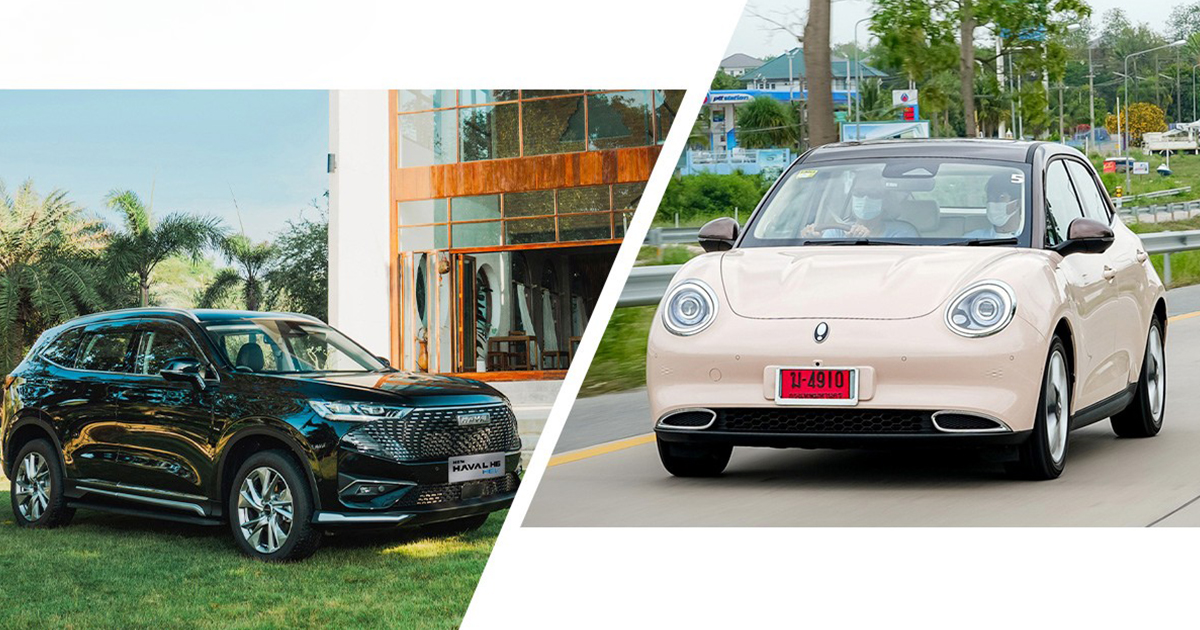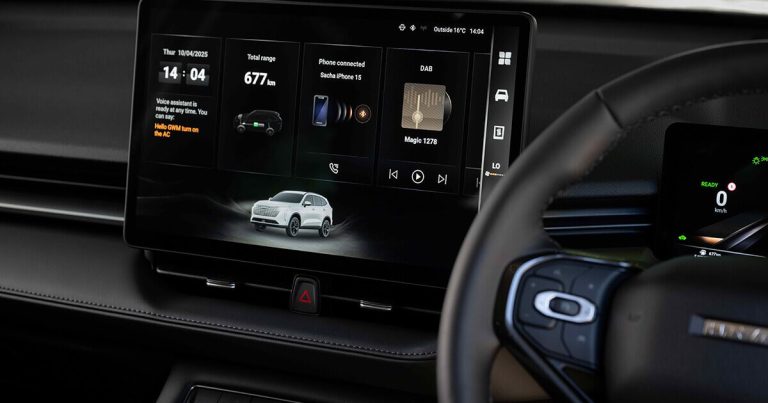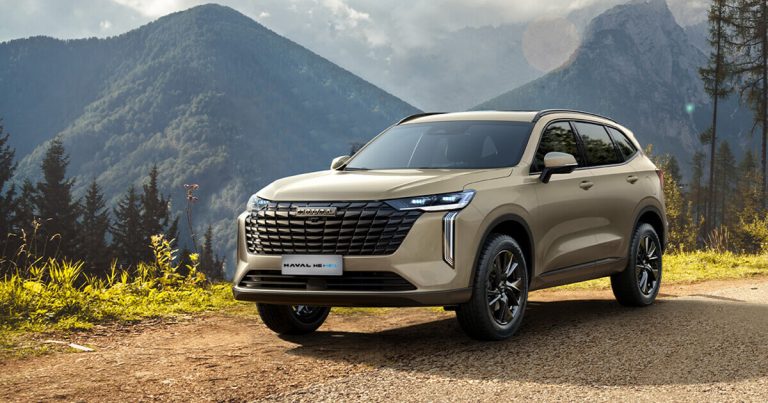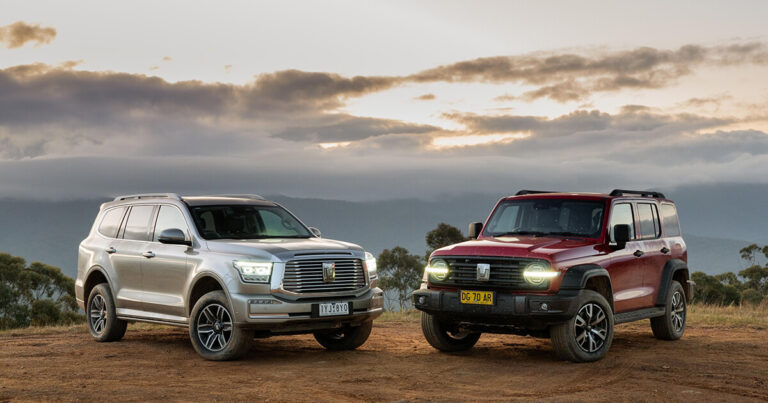As automotive technology advances, more drivers are turning toward eco-friendly options like hybrid and electric cars. But which is better for you: a hybrid vs an electric car? This comprehensive comparison explores both types, including how they work, their environmental impact, and what suits your lifestyle and budget.
What Is a Hybrid Car?
A hybrid car combines a traditional internal combustion engine with an electric motor and battery. These vehicles use both gasoline and electric power to optimize fuel efficiency and reduce emissions.
In most cases, the electric motor assists the engine during acceleration and powers the car at low speeds, while the gas engine kicks in during highway driving or when additional power is needed. The battery is charged through regenerative braking and by the engine itself, so there is no need to plug in.
A perfect example is the Haval Jolion HEV, which features a 1.5L hybrid powertrain designed for urban efficiency and low emissions – ideal for Pakistani roads.
Types of Hybrid Cars
There are several types of hybrid cars, each offering different levels of electric integration:
- Full Hybrid (HEV): These vehicles can drive using the electric motor alone for short distances. For example, the H6 HEV falls into the category, capable of running in electric-only mode at low speeds.
- Mild Hybrid (MHEV): These cannot operate on electric power alone. The electric motor simply supports the engine, improving efficiency.
- Plug-in Hybrid (PHEV): These come with larger batteries that can be charged via an external power source. They allow for longer all-electric drives, perfect for city commutes.
What Is an Electric Car?
An electric car, also known as a battery electric vehicle (BEV), runs solely on electric power. It is powered by an electric motor and a large rechargeable battery.
Unlike hybrid cars, electric vehicles (EVs) have no gasoline engine at all. They must be plugged into a charging station or wall outlet to recharge. Popular examples include the Tesla Model 3, Nissan Leaf, and Hyundai Ioniq 5.
Hybrid Electric Vehicle vs Electric Car: Key Differences
Here’s a side-by-side comparison of hybrid vs electric cars based on major features:
| Feature | Hybrid Cars | Electric Cars |
|---|---|---|
| Power Source | Gasoline + Electric Motor | Purely Electric |
| Charging Required | No (except PHEVs) | Yes |
| Fuel Efficiency | Better than gas cars, but still use fuel | Zero fuel needed |
| Emissions | Lower than gas cars | Zero emissions while driving |
| Driving Range | Longer, thanks to gas engine | Varies based on battery size |
| Maintenance | Moderate | Fewer moving parts, lower maintenance |
| Initial Cost | Lower than EVs | Higher upfront, but savings over time |
| Charging Infrastructure | Not needed or minimal | Needs accessible charging stations |
Environmental Impact of Hybrid vs Electric Cars
The environmental impact of hybrid vs electric cars varies significantly.
- Hybrid Cars: Emit fewer greenhouse gases than traditional vehicles, but still rely on fossil fuels. Their batteries are smaller, resulting in a lower carbon footprint during production.
- Electric Cars: Produce zero tailpipe emissions, making them cleaner to operate. However, their large batteries require more energy and raw materials to manufacture, which can increase the environmental cost unless the electricity is sourced from renewable energy.
In Pakistan, where power grids may still depend on fossil fuels, the full eco-benefits of electric cars will be realized as the country shifts toward greener electricity sources.
Performance and Driving Experience
- Hybrid Cars: Offer a smoother transition between electric and gasoline power. Acceleration and power depend on the car type. Mild hybrids are less powerful in EV mode, while full and plug-in hybrids perform better.
- Electric Cars: Known for instant torque, silent operation, and quick acceleration. They deliver a futuristic and smooth driving experience.
Availability and Infrastructure in Pakistan
- Hybrid Cars: Widely available in Pakistan with increasing options in both new and used car markets.
- Electric Cars: Still emerging. However, EV charging infrastructure is still in early development.
Cost Comparison
- Initial Purchase Price:
- Hybrid cars are generally more affordable upfront.
- Electric vehicles tend to be pricier but benefit from government incentives in some countries (limited in Pakistan as of now).
- Running Costs:
- Hybrid cars save fuel but still require petrol.
- Electric cars offer cheaper running costs (Rs./km) and fewer maintenance expenses over the years.
- Battery Replacement:
- Both vehicles may require costly battery replacements after 7-10 years, depending on usage and brand.
Pros and Cons at a Glance
Hybrid Electric Vehicle
Pros:
- No need to charge (for HEVs and MHEVs)
- Better fuel economy than conventional cars
- Lower emissions
- More models and availability in Pakistan
Cons:
- Still uses fossil fuels
- Moderate maintenance costs
- Less environmental benefit compared to EVs
Electric Car
Pros:
- Zero emissions during use
- Low running and maintenance costs
- Quiet and smooth performance
- Government incentives in some markets
Cons:
- Higher upfront cost
- Requires charging infrastructure
- Limited options in the local market
Which One Should You Choose?
When deciding between a hybrid vs electric car, consider these factors:
- Your daily commute: Short city drives? A PHEV or full EV might suit you. Long highway drives? A hybrid may be more convenient.
- Charging access: Can you charge at home or work? If not, a hybrid might be a better starting point.
- Budget: Electric cars save money long-term but require a bigger upfront investment.
- Environmental goals: If reducing your carbon footprint is a top priority, go electric when possible.
Concluding…
The hybrid vs electric cars debate might seem obsolete at times since both offer greener alternatives to petrol vehicles. For Pakistani buyers, Haval hybrids offer a realistic and accessible green driving option with immediate savings and fewer range worries.




